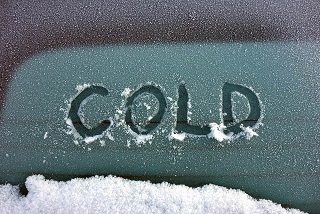
SEVERE WINTER WEATHER
(Tips and tricks to deal with and/or prevent Damages)
As winter progresses, many areas of the country will experience reoccurring severe weather conditions. And last year’s winter history proved that sudden severe weather can occur in even the most unexpected areas of the country.
With severe weather often comes costly damage to property as well as possible health risks to humans and all manner of living beings. The following is a list of sensible preventative measures and corrective actions applicable to some of the most common problems one is likely to experience during extreme winter weather:
AT HOME - Indoors
- To prevent water pipes from freezing, maintain an internal temperature of at least 65 degrees. During prolonged severe cold spells, open both hot and cold faucets allowing them to drip slowly. In older homes, mobile homes or structures with insufficient insulation ratings, it is wise to open the under-sink and vanity doors to take advantage of the warm interior air. Locate the main water shutoff in your home and learn how it works in case you need to use it. (That is a need to know in case of a pipe burst at any time of the year.)
- Check fireplaces, wood stoves and electric heaters frequently to be sure they are working properly. When the fireplace is not in use, always close the flue to prevent the heated interior air from going up the chimney. Be sure that any portable heater you use is designed and approved specifically for use inside your home.
- If the garage is attached to the house, keep the overhead and service doors closed. The service door into the house is probably not well insulated.
Outside
- Keep sidewalks and exterior entrances to the home free of ice and snow. If possible, pre-treat entrances and driveways with deicers (liquid or salt) before a snowstorm. Deicers are meant to be used on ice only, clear off all snow before using any deicing agent. To preserve landscaped areas and grass, never shovel snow from treated areas onto planted areas or lawns. Shovel ice and snow from treated areas into gutters or areas where snow will be removed will be removed by city or county contractors.
- Provide well insulated and/or heated areas for all exteriorly housed dogs and other animals.
- Keep gutters free of leaves and debris. If ice dams form near gutter downspouts, reroute water-flow (with gravel if necessary) so that it runs freely. Captured water can seep into the house and may end up causing mold.
- Disconnect hoses from outdoor spigots. During prolonged freezes cover spigots with inexpensive covers which are readily available at hardware and home-stores.
- Residents in remote areas should keep a supply of lanterns, flashlights, batteries, non-perishable food and bottled water in the event of a prolonged power outage or impassable roads.
- In case of downed power lines on or near your property, temporarily shut off power to your home. Prevent family members and domestic animals from going near the lines. Don’t attempt to deal with power lines yourself. Call the utility company for prompt repairs.
If pipes freeze act swiftly to thaw them or call a plumber, don’t wait until they burst.
Be sure that water damage to the home is properly dried and repaired to prevent mold problems.
Report an insurance claim. Keep all receipts for clean-up and repair expenses to substantiate your claim. Most homeowner’s insurance policies will cover damages that result from ice or heavy snow damage, but will exclude coverage due to sewer or drain backups, or flood. Those damages are normally covered by flood policies from the National Flood Insurance Program. Contact your homeowner’s policy Insurance Agent if you have any question regarding the differences in water damage coverage in the two types of policies.
Protect your home and everything inside of it. Call Best Insurance at 979-297-2655 for more information on homeowners, auto or commercial insurance.